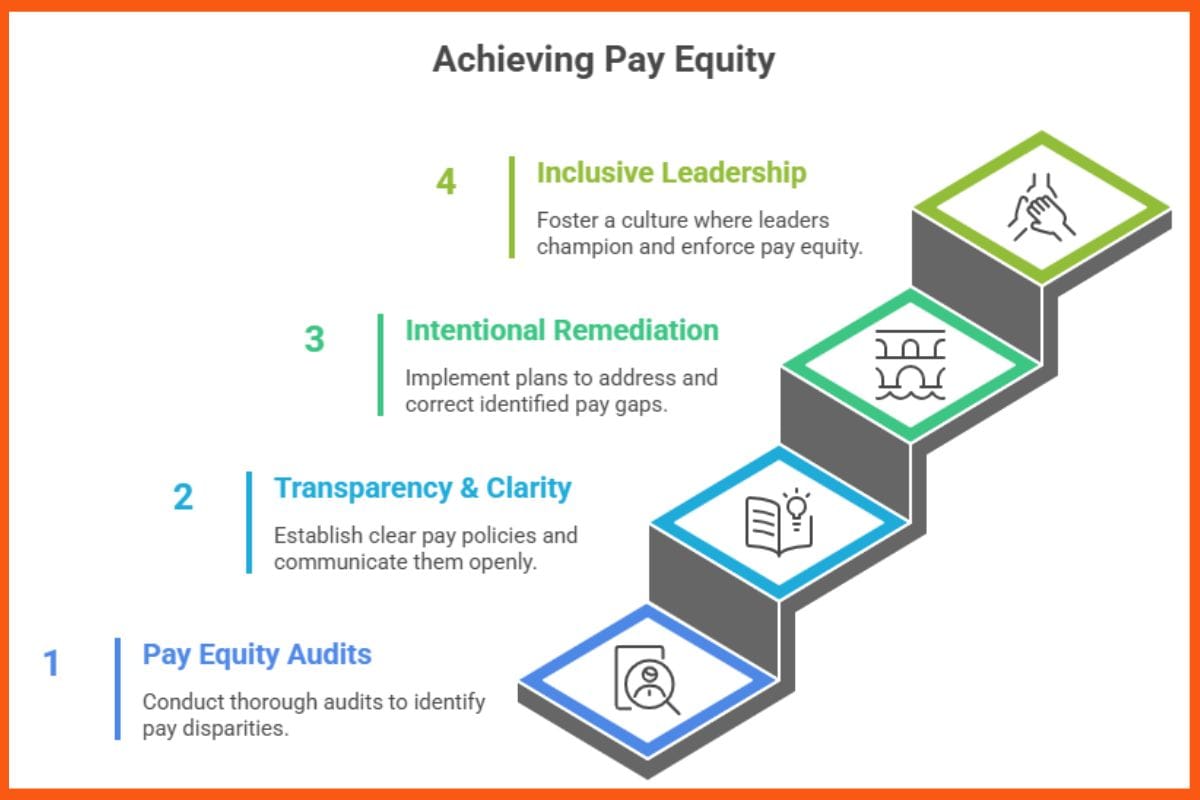This article has been contributed by Sonia Seth, VP – People and Culture at BayOne Solutions
In today’s fast-paced changing world of business, equal pay cannot be a checkbox in HR or a compliance item, but a potent business tactic. Those organizations that provide equitable compensation for equitable work outperform, build better culture, and attract the best talent consistently. Equal pay today is, quite simply, the moral imperative and the business strategy of top-performing companies.
The Strategic Case for Equal Pay
More and more, organizations are waking up to the real returns of fair compensation practices. OutSolve recently analyzed that compensation fairness leads to greater employee commitment, better retention, and better brand standing. Employees don’t just want to be told things are fair; they want to see it demonstrated. Businesses that openly review pay, have clear criteria, and fix disparities experience a high return on investment in terms of loyalty, productivity, and trust.
From an economic standpoint, the case for equal pay is strong. Research indicates that firms that report and close wage gaps have 50% higher levels of employee satisfaction. In addition, pay openness, especially regarding gender, has been shown to cut wage gaps by approximately 18% in certain markets.
Risks of Ignoring Inequity
Ignoring pay differentials is not dollar-neutral. It’s costly, both financially and in reputation. Regulatory agencies, such as United States and EU regulations like the Pay Transparency Directive, are increasingly cracking down on disparities.
Additionally, disparities in pay harm morale. Science indicates that even perceived injustice, when two individuals with “similar” jobs receive unequal pay, can significantly reduce employee engagement. An employee pool that suspects management of dishonesty is much less likely to innovate, to cooperate, or to remain long-term.

Creating Equal Pay as Part of Business Strategy

- Pay Equity Audits: The initial step is to take a look at your pay system. Pay equity audits uncover disparities and create the factual foundation upon which action can be based. Such audits ought to examine compensation for equivalent positions by performance, not looks, and job content, not job titles, determining fairness.
- Transparency and Policy Clarity: Publicly posting pay ranges and having good promotion and raise policies makes employees trust. When employees understand the criteria used in making compensation decisions, there is less room for doubt and equity is a part of culture. (The Society of Occupational Medicine)
- Intentional Remediation: Finding disparities is only the beginning. Organizations require formal plans to bridge gaps, whether through adjustments, promotions, or job realignment. Notably, these plans communicate to workers that fairness is not optional.
- Inclusive Leadership and Culture Buy-In: Equal pay needs support at all levels. Leaders need to lead by example, engage in training, enforce reward policies, and evaluate decisions based on equity.
Case in Point: Industry Best Practices
Top employers offer real-world evidence that equal pay is not just virtuous, it’s worth it. Salesforce, for instance, discloses publicly its pay equity work, taking audits beyond gender, race, and job type. Similarly, organizations prioritizing pay fairness report heightened employee engagement, an 82% boost among workers who feel their pay reflects equal value and contribution.
Why Equal Pay Will Still Matter Tomorrow
Equal pay is not a trend that will pass, it’s business resilience by design. Younger generations going into work expect more than innovation, they expect fairness, transparency, and mutual purpose. Businesses that provide equal pay for equal work set themselves up to win the future, not only in the top line, but also in people and in reputation.
As states and nations increasingly require equity audits and transparency, compliance is competitive excellence. Compensating fairly today is how businesses compete tomorrow.
Equal pay isn’t expensive, it’s pioneering. By incorporating fair compensation as a strategy, organizations focus on engagement, minimize turnover, protect themselves from legal liability, and gain trust with customers and communities. When firms respond to fair pay, they are doing more than comply with policy, they are creating cultures in which individuals feel noticed, appreciated, and encouraged to produce bold, impactful work. Equal pay: it’s not just fairness, it’s smart business.

